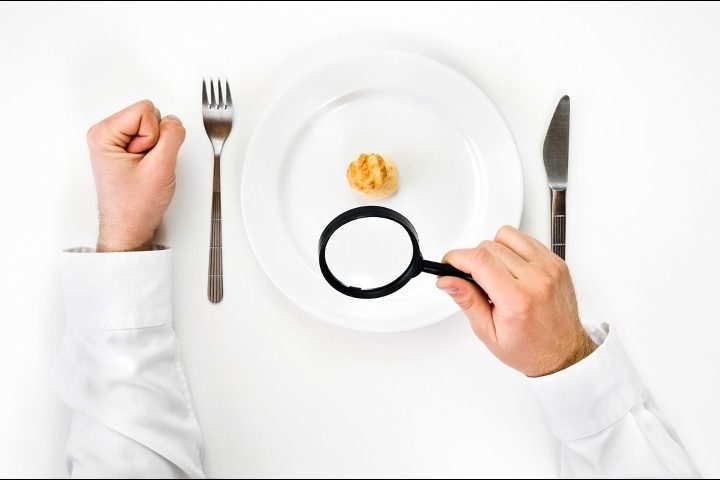
“Do you know what a Polish sandwich looks like?” a communist-era joke went. Answer:
“Two slices of bread and a ration card for the meat in between.”
Unfortunately, Poles weren’t laughing at the time. We may not be, either, in a bit of time — that is, if our pseudo-elites get their way.
This conclusion is suggested by a new poll showing that, shockingly, 77 percent of higher-income Americans overall and almost 90 percent of those from “top universities” believe in a strict rationing of gas, meat, and electricity in order to combat “climate change.” In fact, nearly 60 percent of such people believe there’s too much liberty in America even though, objectively speaking, we’re less free than ever.
Moreover, in another example of the pseudo-elite vs. street divide, 63 percent of Americans in general oppose the above rationing policy.
Reporting on the story, The College Fix writes that the “Committee to Unleash Prosperity [CUP], in a survey that sought to measure the beliefs of ‘elites,’ stated the findings reveal climate change ‘is clearly an obsession of the very rich and highly educated.’” The site also informs:
The poll, released this month and titled “Them vs. U.S.: The two Americas and how the nation’s elite is out of touch with average Americans,” was billed by the committee as a “first-of-its-kind look at the views of the American Elite.”
They are defined as “people having at least one post-graduate degree, earning at least $150,000 annually, and living in high-population density areas (more than 10,000 people per square mile in their zip code).”
… The report is based on two surveys of 1,000 elites conducted last fall.
“The study also examined a sub-sample of elites, adults who attended Ivy League schools or other elite private schools, including Northwestern, Duke, Stanford, and the University of Chicago. Roughly half of those we classify as ‘elites’ attended one of these schools. For the purpose of this study, we label those who attended one of these schools as ‘Ivy League Graduates,’” according to the group.
Birkenstock-wearing, Latte-drinking, Kale-eating Soy Boy Upper Managers of the World Unite?
So when failed presidential candidate John Edwards said on the campaign trail in 2004 that there are “two Americas,” he was right — just not in the way he thought. CUP illustrates this well, summarizing its findings:
- In a time when most Americans have suffered a loss of real take-home pay, 74% of elites say they are financially better off today than in the past versus 20% of all Americans.
- Nearly six in ten say there is too much individual freedom in America – double the rate of all Americans.
- More than two-thirds (67%) favor rationing of vital energy and food sources to combat the threat of climate change.
- In stark contrast to the rest of America, 70% of the Elites trust the government to “do the right thing most of the time.”
- Two-thirds (67%) say teachers and other educational professionals should decide what children are taught rather than letting parents decide.
- Somewhere between half and two-thirds favor banning things like SUVs, gas stoves, air conditioning, and non-essential air travel to protect the environment.
- About six of ten elites have a favorable opinion of the so-called talking professions—lawyers, lobbyists, politicians, and journalists.
- President Joe Biden enjoys an 84% job approval rating from this group – roughly twice as high as the general public.
Power Line’s John Hinderaker points out, however, that it’s a mistake calling these people “elite” — and not because they’re merely pseudo-elites, wholly unspectacular intellectually and morally. Rather, adding perspective, he writes:
Ten thousand people per square mile represents a high-density urban environment. But in that context, $150,000 a year is no princely salary. Nationwide, it takes far more–around $650,000 annually–to be in the top 1% in income. A person who lives in a big city and earns $150,000 is not, in any financial sense, elite.
So the key element in [the] formula is having a postgraduate degree. Basically, what we are surveying here is people with graduate degrees who live in cities, the large majority of whom don’t make a great deal of money. Many in that group are probably women….
In fact, with these people having been indoctrinated out of their common sense, coming to mind could be the saying, “Never let your schooling interfere with your education.”
As for many respondents possibly being female, note that young women in large cities actually enjoy relative wage parity with men; in fact, they out-earn their male counterparts in several large metropolises.
This said and as the electoral “sex gap” reflects, women are generally more liberal than men are; women are also significantly more likely to support “left-wing authoritarianism,” according to a study cited by famed psychologist Jordan Peterson.
Whatever their sex, however, clear is that a more accurate way than even “pseudo-elite” to describe most of these people is “useful idiots.” As with the liberal NYC parent who balked at “diversity” after an integration plan affected his kids’ school — saying “It’s more complicated when it’s about your own children” — these “progressives” aren’t big on living with their own ideals.
But they’d have to.
Under the kind of government they’d (unwittingly) enable, only a minuscule ruling pseudo-elite enjoy power, position, pocketbook, and perks. The billionaire Soros and Gates clans may be able to buy themselves a place at the table, but $150k (which they’d no longer command, anyway) will place you among the serfs.
In other words, these useful idiots would be subject to rationing themselves — inclusive of the arts-and-croissant-crowd pleasures of which they’re so fond. Our entire modern lifestyle, after all, is energy dependent.
The lesson is that the hellfire demons of despotism can be liberated but not moderated, and will happily consume along with those who’d tighten their bonds, those who would loose them.



